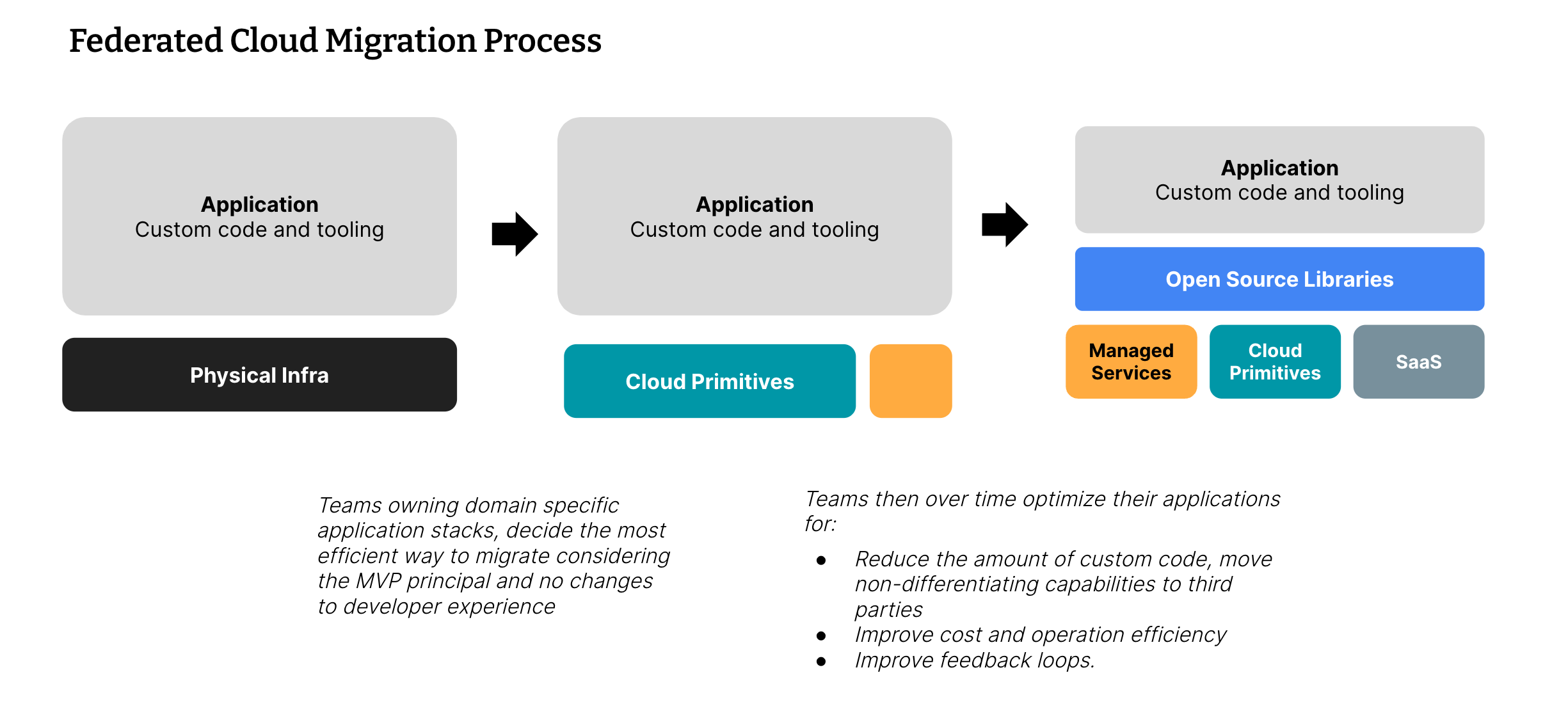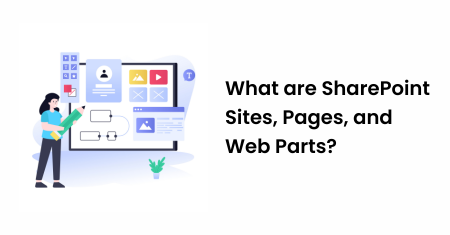
Etsy, a web-based market for distinctive, handmade, and classic objects, has
seen excessive progress during the last 5 years. Then the pandemic dramatically
modified consumers’ habits, resulting in extra customers buying on-line. As a
outcome, the Etsy market grew from 45.7 million consumers on the finish of
2019 to 90.1 million consumers (97%) on the finish of 2021 and from 2.5 to five.3
million (112%) sellers in the identical interval.
The expansion massively elevated demand on the technical platform, scaling
site visitors virtually 3X in a single day. And Etsy had signifcantly extra clients for
whom it wanted to proceed delivering nice experiences. To maintain up with
that demand, they needed to scale up infrastructure, product supply, and
expertise drastically. Whereas the expansion challenged groups, the enterprise was by no means
bottlenecked. Etsy’s groups had been capable of ship new and improved
performance, and {the marketplace} continued to offer a glorious buyer
expertise. This text and the following kind the story of Etsy’s scaling technique.
Etsy’s foundational scaling work had began lengthy earlier than the pandemic. In
2017, Mike Fisher joined as CTO. Josh Silverman had not too long ago joined as Etsy’s
CEO, and was establishing institutional self-discipline to usher in a interval of
progress. Mike has a background in scaling high-growth firms, and alongside
with Martin Abbott wrote a number of books on the subject, together with The Art of Scalability
and Scalability Rules.
Etsy relied on bodily {hardware} in two information facilities, presenting a number of
scaling challenges. With their anticipated progress, it was obvious that the
prices would ramp up shortly. It affected product groups’ agility as that they had
to plan far prematurely for capability. As well as, the info facilities had been
primarily based in a single state, which represented an availability danger. It was clear
they wanted to maneuver onto the cloud shortly. After an evaluation, Mike and
his group selected the Google Cloud Platform (GCP) because the cloud companion and
began to plan a program to maneuver their
many techniques onto the cloud.
Whereas the cloud migration was occurring, Etsy was rising its enterprise and
its group. Mike recognized the product supply course of as being one other
potential scaling bottleneck. The autonomy afforded to product groups had
prompted a problem: every group was delivering in several methods. Becoming a member of a group
meant studying a brand new set of practices, which was problematic as Etsy was
hiring many new folks. As well as, that they had observed a number of product
initiatives that didn’t repay as anticipated. These indicators led management
to re-evaluate the effectiveness of their product planning and supply
processes.
Strategic Rules
Mike Fisher (CTO) and Keyur Govande (Chief Architect) created the
preliminary cloud migration technique with these ideas:
Minimal viable product – A typical anti-pattern Etsy wished to keep away from
was rebuilding an excessive amount of and prolonging the migration. As a substitute, they used
the lean idea of an MVP to validate as shortly and cheaply as potential
that Etsy’s techniques would work within the cloud, and eliminated the dependency on
the info heart.
Native determination making – Every group could make its personal choices for what
it owns, with oversight from a program group. Etsy’s platform was cut up
into quite a lot of capabilities, reminiscent of compute, observability and ML
infra, together with domain-oriented software stacks reminiscent of search, bid
engine, and notifications. Every group did proof of ideas to develop a
migration plan. The primary market software is a famously giant
monolith, so it required making a cross-team initiative to give attention to it.
No adjustments to the developer expertise – Etsy views a high-quality
developer expertise as core to productiveness and worker happiness. It
was necessary that the cloud-based techniques continued to offer
capabilities that builders relied upon, reminiscent of quick suggestions and
subtle observability.
There additionally was a deadline related to present contracts for the
information heart that they had been very eager to hit.
Utilizing a companion
To speed up their cloud migration, Etsy wished to deliver on exterior
experience to assist in the adoption of recent tooling and expertise, reminiscent of
Terraform, Kubernetes, and Prometheus. In contrast to a number of Thoughtworks’
typical shoppers, Etsy didn’t have a burning platform driving their
basic want for the engagement. They’re a digital native firm
and had been utilizing a completely trendy strategy to software program improvement.
Even with no single drawback to give attention to although, Etsy knew there was
room for enchancment. So the engagement strategy was to embed throughout the
platform group. Thoughtworks infrastructure engineers and
technical product managers joined search infrastructure, steady
deployment providers, compute, observability and machine studying
infrastructure groups.
An incremental federated strategy
The preliminary “elevate &
shift” to the cloud for {the marketplace} monolith was probably the most tough.
The group wished to maintain the monolith intact with minimal adjustments.
Nonetheless, it used a LAMP stack and so can be tough to re-platform.
They did quite a lot of dry runs testing efficiency and capability. Although
the primary cut-over was unsuccessful, they had been capable of shortly roll
again. In typical Etsy model, the failure was celebrated and used as a
studying alternative. It was finally accomplished in 9 months, much less time
than the total 12 months initially deliberate. After the preliminary migration, the
monolith was then tweaked and tuned to situate higher within the cloud,
including options like autoscaling and auto-fixing dangerous nodes.
In the meantime, different stacks had been additionally being migrated. Whereas every group
created its personal journey, the groups weren’t fully on their very own.
Etsy used a cross-team structure advisory group to share broader
context, and to assist sample match throughout the corporate. For instance, the
search stack moved onto GKE as a part of the cloud, which took longer than
the elevate and shift operation for the monolith. One other instance is the
information lake migration. Etsy had an on-prem Vertica cluster, which they
moved to Massive Question, altering all the things about it within the course of.
Not stunning to Etsy, after the cloud migration the optimization
for the cloud didn’t cease. Every group continued to search for alternatives
to make the most of the cloud to its full extent. With the assistance of the
structure advisory group, they checked out issues reminiscent of: easy methods to
cut back the quantity of customized code by transferring to industry-standard instruments,
easy methods to enhance value effectivity and easy methods to enhance suggestions loops.

Determine 1: Federated
cloud migration
For example, let’s have a look at the journey of two groups, observability
and ML infra:
The challenges of observing all the things
Etsy is legendary for measuring all the things, “If it strikes, we observe it.”
Operational metrics – traces, metrics and logs – are utilized by the total
firm to create worth. Product managers and information analysts leverage the
information for planning and proving the expected worth of an concept. Product
groups use it to assist the uptime and efficiency of their particular person
areas of accountability.
With Etsy’s dedication to hyper-observability, the quantity of knowledge
being analyzed isn’t small. Observability is self-service; every group
will get to resolve what it desires to measure. They use 80M metric collection,
masking the positioning and supporting infrastructure. This can create 20 TB
of logs a day.
When Etsy initially developed this technique there weren’t a number of
instruments and providers available on the market that might deal with their demanding
necessities. In lots of circumstances, they ended up having to construct their very own
instruments. An instance is StatsD, a stats aggregation device, now open-sourced
and used all through the {industry}. Over time the DevOps motion had
exploded, and the {industry} had caught up. Lots of modern
observability instruments reminiscent of Prometheus appeared. With the cloud
migration, Etsy might assess the market and leverage third-party instruments
to scale back operational value.
The observability stack was the final to maneuver over as a result of its advanced
nature. It required a rebuild, moderately than a elevate and shift. That they had
relied on giant servers, whereas to effectively use the cloud it ought to
use many smaller servers and simply scale horizontally. They moved giant
elements of the stack onto managed providers and third get together SaaS merchandise.
An instance of this was introducing Lightstep, which they might use to
outsource the tracing processing. It was nonetheless essential to do some
quantity of processing in-house to deal with the distinctive situations that Etsy
depends on.
Migration to the cloud-enabled a greater ML platform
A giant supply of innovation at Etsy is the way in which they make the most of their
Machine studying.
Etsy leverages
machine studying (ML) to create personalised experiences for our
tens of millions of consumers around the globe with state-of-the-art search, advertisements,
and proposals. The ML Platform group at Etsy helps our machine
studying experiments by creating and sustaining the technical
infrastructure that Etsy’s ML practitioners depend on to prototype, practice,
and deploy ML fashions at scale.
The transfer to the cloud enabled Etsy to construct a brand new ML platform primarily based
on managed providers that each reduces operational prices and improves the
time from concept technology to manufacturing deployment.
As a result of their assets had been within the cloud, they might now depend on
cloud capabilities. They used Dataflow for ETL and Vertex AI for
coaching their fashions. As they noticed success with these instruments, they made
certain to design the platform in order that it was extensible to different instruments. To
make it extensively accessible they adopted industry-standard instruments reminiscent of
TensorFlow and Kubernetes. Etsy’s productiveness in creating and testing
ML leapfrogged their prior efficiency. As Rob and Kyle put it, “We’re
estimating a ~50% discount within the time it takes to go from concept to reside
ML experiment.”
This efficiency progress wasn’t with out its challenges nonetheless. Because the
scale of knowledge grew, so too did the significance of high-performing code.
With low-performing code, the shopper expertise may very well be impacted, and
so the group needed to produce a system which was extremely optimized.
“Seemingly small inefficiencies reminiscent of non-vectorized code may result
in an enormous efficiency degradation, and in some circumstances we’ve seen that
optimizing a single tensor circulation rework operate can cut back the mannequin
runtime from 200ms to 4ms.” In numeric phrases, that’s an enchancment of
two orders of magnitude, however in enterprise phrases, it is a change in
efficiency simply perceived by the shopper.
What had been the challenges of the cloud?
Etsy needed to function its personal infrastructure, and a number of the platform
groups’ abilities had been in techniques operation. Shifting the cloud allowed groups
to make use of a better abstraction, managed by infrastructure as code. They
modified their infrastructure hiring to search for software program engineering
abilities. It prompted friction with the present group; some folks had been very
excited however others had been apprehensive in regards to the new strategy.
Whereas the cloud definitely diminished the variety of issues they needed to
handle and allowed for easier planning, it didn’t absolutely get them away
from capability planning. The cloud providers nonetheless run on servers with
CPUs and Disks, and in some conditions, there may be right-sizing for future
load that must be achieved. Going ahead, as on-demand cloud providers
enhance, Etsy is hopeful they’ll cut back this capability planning.
The stress check of the pandemic
Etsy had all the time been information heart primarily based, which had stored them
constrained in some methods. As a result of they’d been so closely invested in
their information heart presence, they hadn’t been benefiting from new
choices cloud distributors had developed. For instance, their information heart
setup lacked sturdy APIs to handle provisioning and capability.
When Mike Fisher got here onboard, Etsy then started their cloud migration
journey. This set them up for fulfillment for the longer term, for the reason that
migration was principally completed at first of the pandemic. There
had been just a few methods this manifested: that they had no capability crunch, though
site visitors exploded 2-3X in a single day, as occasions had elevated from 1 billion
to six billion.
And there have been particular examples of the way the cloud gave them agility
through the pandemic. For instance, the cloud enabled efforts to shut the
“semantic hole”, guaranteeing searches for “masks” surfaced material masks not
face masks of the beauty or costume selection. This was potential as a result of
Google Cloud enabled Etsy to implement extra subtle machine
studying and the agility to retrain algorithms in actual time. One other
instance was their database administration modified from the datacenter to the
cloud. Particularly, round backups, Etsy’s DR posture improved within the
cloud, since they leveraged block storage snapshotting as a method of
restoring databases. This enabled them to do quick restores, have
confidence and be capable to check them shortly, not like the older methodology,
the place a restore would take a number of hours and never be completely
scalable.
Etsy performs in depth load and efficiency testing. They use chaos
engineering strategies, having a ‘scale day’ that stresses the techniques
at max capability. After the pandemic the elevated load was now not a
spike, it was now the each day common. The load testing structure and
strategies wanted to be simply as scalable as some other system with a view to
deal with the expansion.
Regularly Bettering the platform
Considered one of Etsy’s subsequent focus areas is to create “paved roads” for
engineers. A set of prompt approaches and equipment to scale back
friction when launching and creating providers. In the course of the preliminary 4
years of the cloud migration, they determined to take a really federated
technique. They took the “let 1000 flowers bloom” strategy as described
by Peter Seibel in his article on engineering effectiveness at
Twitter.
The techniques had by no means existed within the cloud earlier than. They didn’t know
what the payoffs can be, and wished to maximise the probabilities of
discovering worth within the cloud.
Consequently, some product groups are reinventing the wheel as a result of
Etsy doesn’t have present implementation patterns and providers. Now
that they’ve extra expertise working within the cloud, platform groups
know the place the gaps are and may see the place tooling is required.
To find out if the investments are paying off. Etsy is monitoring
numerous measures. For instance, they monitor tendencies in SLI/SLOs associated
to reliability, debuggability and availability of the techniques. One different
key metric is Time to Productive – the time it takes for a brand new engineer
to be arrange with their environments and make the primary change. What
precisely which means adjustments by area; for instance it may be the primary
web site push or the primary information pipeline working within the large information
platform. One thing that used to take 2 hours now takes 20 minutes.
They mix these quantitative metrics with recurrently measuring
engineering satisfaction, utilizing a type of an NPS survey to evaluate how
engineers take pleasure in working of their respective engineering environments,
and provides a chance to level out issues and recommend enhancements.
One other fascinating stat is that the infrastructure has expanded to make use of
10x the variety of nodes however solely requires 2x the variety of folks to
handle them.
Measuring Value and Carbon Consumption
Etsy continues to embrace measuring all the things. Shifting to the cloud
made it simpler for groups to determine and observe their operational prices
than it had been within the datacenters. Etsy constructed instruments on prime of Google
Cloud to offer dashboards which give perception into spending, so as
to assist groups perceive which options had been inflicting prices to rise. The
dashboards included wealthy contextual info to assist them make
optimization choices, measured towards their understanding of what
excellent effectivity needs to be.
A vital firm pillar is sustainability. Etsy studies their
vitality consumption of their quarterly SEC filings, and have made
commitments to scale back it. That they had been measuring vitality consumption in
the info heart, however making an attempt to do that within the cloud was initially extra
tough. A group at Etsy researched and created Cloud Jewels, an vitality
estimation device, which they open-sourced.
We’ve
been unable to measure our progress towards one in all our key affect targets
for 2025 — to scale back our vitality depth by 25%. Cloud suppliers
typically don’t speak in confidence to clients how a lot vitality their providers
eat. To make up for this lack of knowledge, we created a set of
conversion elements known as Cloud Jewels to assist us roughly convert our
cloud utilization info (like Google Cloud utilization information) into approximate
vitality used. We’re proud that our work and methodology have been leveraged by
Google and AWS to construct into their very own fashions and instruments.— Emily Sommer (Etsy sustainability architect)
These metrics have not too long ago been added to their product dashboard,
permitting product managers and engineers to search out alternatives to scale back
vitality consumption and spot whether or not a brand new function has had any impact.
Thoughtworks, who has the same sustainability mission, additionally created an
open-source device known as the Cloud Carbon Footprint, which was impressed
by preliminary analysis into Cloud Jewels, and additional developed by an
inner Thoughtworks group.






